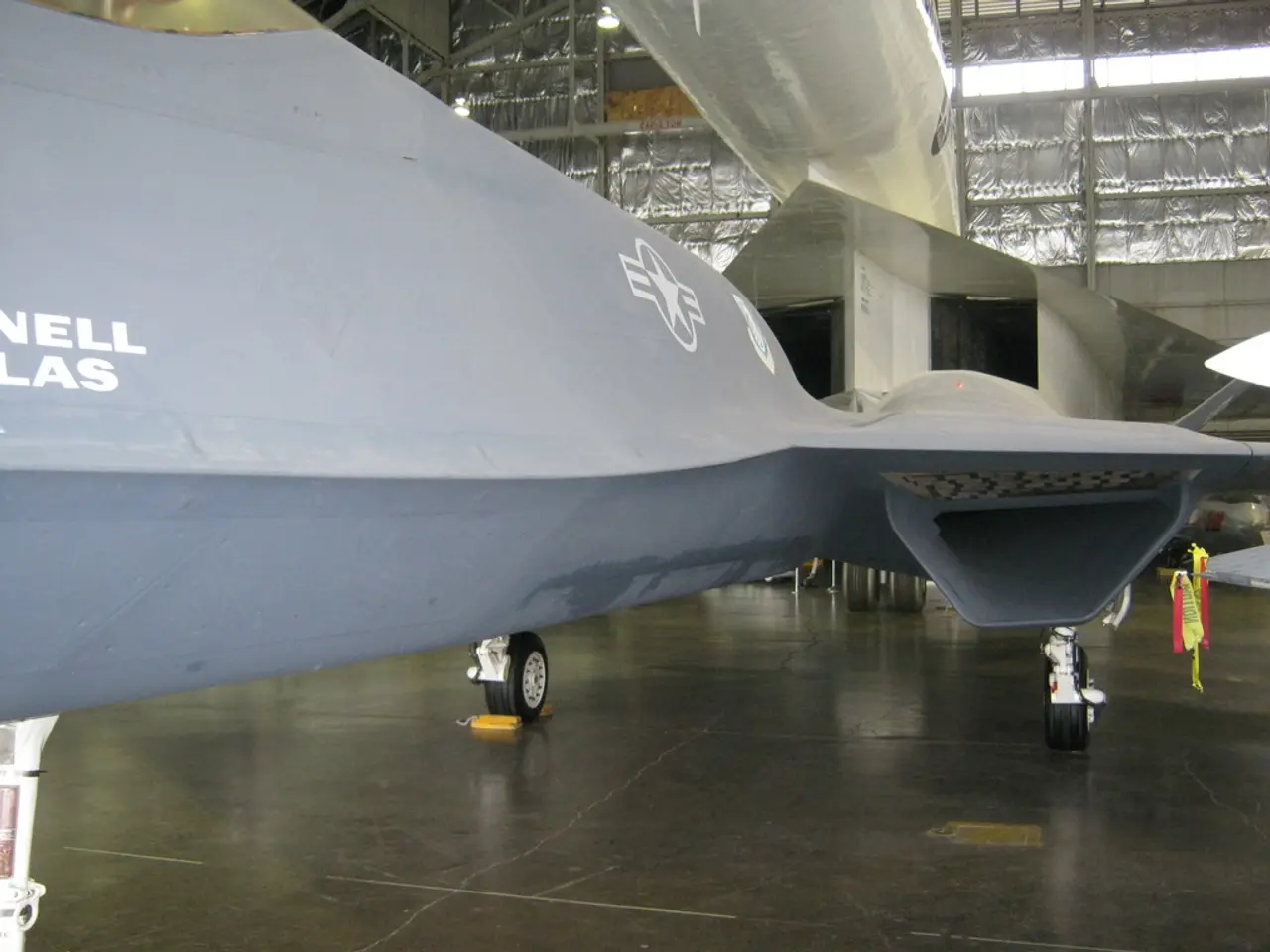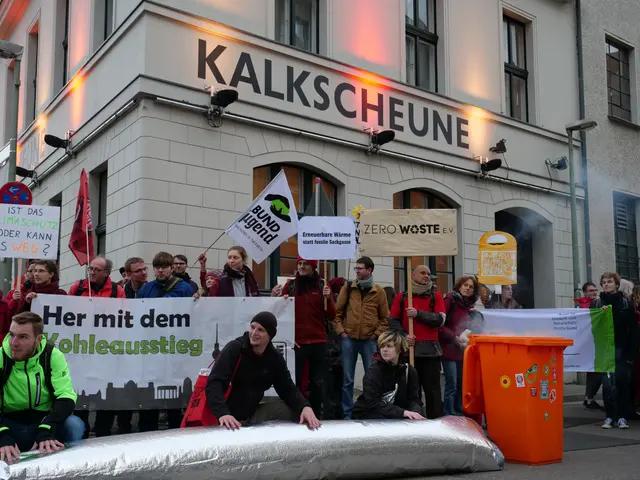Strike action initiated by thousands of Boeing employees, predominantly involved in the production of fighter jets and armaments
In a setback for Boeing's recovery efforts, approximately 3,200 workers at key defense manufacturing sites in St. Louis, St. Charles (Missouri), and Mascoutah (Illinois) have gone on strike. The labor action began after union members rejected a contract offer that included significant wage increases but fell short of union demands[1][2][3].
The strike, which follows a weeklong cooling-off period after an earlier proposed contract was rejected, threatens to hinder Boeing’s financial recovery post-2024 and may delay defense production schedules[1][3]. The rejected labor offer featured a proposal averaging a 40% wage increase over four years, raising average wages from $75,000 to about $102,600, plus $5,000 bonuses and improved vacation/sick leave for new workers[1][3][4].
Boeing’s Defense, Space & Security business accounts for more than one-third of the company’s revenue. As such, the strike could disrupt production and delivery of critical defense contracts. Boeing’s Air Dominance vice president expressed disappointment over the rejection and noted that contingency plans were implemented to mitigate strike effects and maintain customer support[1][4].
The strike affects workers who build aircraft and defense systems for Boeing. This labor action illustrates ongoing tensions in Boeing’s defense manufacturing sector amid efforts to stabilize its finances and maintain its military production commitments.
Meanwhile, Boeing continues to face challenges from its commercial jet division. The Federal Aviation Administration put limits on Boeing airplane production due to concerns about manufacturing quality safeguards, following a door plug incident on a 737 Max plane[5][6]. The 737 Max production limits were imposed by the Federal Aviation Administration following the door-plug incident, which occurred on a 737 Max plane during an Alaska Airlines flight in January last year[7]. The door-plug incident renewed concerns about the safety of the 737 Max, which was involved in two crashes less than five months apart in 2018 and 2019, killing 346 people[7].
Despite these challenges, Boeing's second-quarter financial report showed an improvement in revenue and a narrowing of losses compared to the same period last year. In the second quarter of 2021, Boeing's revenue improved, and its losses narrowed, with the company reporting a loss of $611 million, compared to a loss of $1.44 billion during the same period last year[8].
As the strike continues, Boeing CEO Kelly Ortberg stated that the impact from this strike would be much less than a walkout last year by 33,000 workers[3]. No immediate new contract talks are scheduled as of the strike onset[4]. Shares of Boeing Co. slipped less than 1% before the opening bell on Monday.
References:
- Boeing strike begins as workers reject contract offer
- Boeing strike threatens to hinder financial recovery
- Boeing strike begins after workers reject contract offer
- Boeing strike affects workers who build aircraft and defense systems
- Federal investigations into Boeing initiated after door-plug incident
- FAA imposes limits on Boeing airplane production
- Door-plug incident on 737 Max plane renews safety concerns
- Boeing's Q2 financial report shows improvement in revenue and narrowing losses
- The ongoing strike by Boeing workers in key defense manufacturing sites in St. Louis, St. Charles (Missouri), and Mascoutah (Illinois) poses a potential risk for the transportation industry in California, as it may impact the delivery of defense contracts.
- The rejection of a significant labor offer, which included a 40% wage increase over four years, indicates a business impasse between Boeing and its workers, affecting not only the aerospace industry but also its financial standing.
- In response to the strike, Boeing's Defense, Space & Security business may have to adjust its production schedules in Los Angeles, affecting their commitments in the California defense industry.
- The consequence of the labor action could have a ripple effect on other sectors, as Boeing's financial recovery post-2024 is partially dependent on maintaining stable business relationships, including those in California's finance industry.








